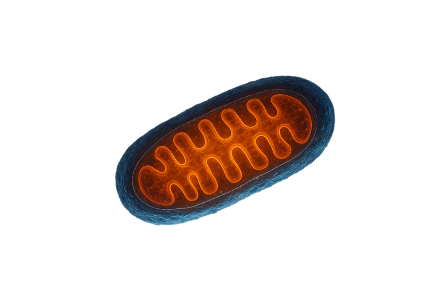Cellular Metabolism and Neurodegeneration
Mitochondria are often called the ”powerhouse of the cell” - the power grid that generates the energy needed for life. Every thought, movement, and sensory experience depends on a constant flow of energy from mitochondria in the form of ATP (adenosine triphosphate). Mitochondria also play critical roles in cellular signaling, mitophagy (mitochondrial repair), managing metabolic and oxidative stress response, biogenesis response to energy demands, spatial calcium buffering, and apoptosis (regulating orderly cell death).
Energy demand in neurons is among the highest in the body. The brain is 2% of body weight and 20% of energy consumption*. Each neuron extends axons that require precise transport and distribution of mitochondria to maintain function and survival. And unlike other cells, neurons don’t store energy so losses in energy supply have damaging repercussions.
When mitochondrial metabolism collapses, neurons are among the first cells to fail. This loss of cellular energy is an early event in ALS (Amyotrophic Lateral Sclerosis), FTD (Frontotemporal Degeneration), Alzheimer’s, Parkinson’s, and retinal degeneration. Energy failure drives oxidative stress, calcium imbalance, axonal transport breakdown, and ultimately, neuronal death.
MitoChem’s research begins here — with the goal of restarting the neuronal power grid by restoring mitochondrial homeostasis.
Healthy Mitochondria
ATP (energy) abundance
Functional stress response
Quality control & repair
Calcium flux balance
Dysfunctional Mitochondria
Reduced ATP (energy) capacity
Impaired stress response
Impaired self-repair
Impaired Calcium flux control
Next…
Mitochondria: “Powerhouse of the Cell”




